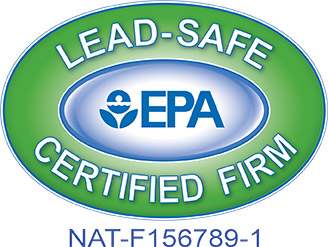Embarking on a home improvement project involves several different steps. You have to decide on what you want, meet with potential contractors, interpret bids, and decide who will build what, and for how much. When all of this is said and done, there is one final (okay, maybe not final) hurdle to jump: the contract.
Negotiating a contract isn’t high on most people’s list of fun things to do, but it’s necessary. Moreover, a well-drafted contract provides you protection by dictating the agreed upon terms between you and your builder.
Here are a few key items to look out for when navigating a contract.
Home Improvement Commission Requirements
By now, you have probably already checked to make sure your builder is licensed and insured. If not, now is the time, before you sign anything. Each state has its own specific state and county laws with which builders must comply. Look up your state’s home improvement commission and run that license number through to ensure your builder is in good standing with the commission. Get proof of insurance before signing a contract.
It’s also a good idea to take a look at your state’s home improvement website and familiarize yourself with their requirements. The sites are typically highly geared towards homeowners and provide a list of do’s and don’ts that are easy to understand and help you know what to look out for with your contract.
Money
Another important part of the contract is the money: what amounts will be disbursed, and at which phases of the project? The payment schedule (commonly referred to as the “draw schedule”) should be distributed fairly evenly throughout the project, with a chunk of it held until the end to ensure your builder finishes everything they said they would.
A word about deposits. Most states have laws in place to protect homeowners from being swindled into making huge deposits at the signing of the contract, only to be left high and dry. In Maryland, a contractor may not collect a deposit for more than one-third of the total contract price at the time of signing.
The Nitty-Gritty: Job Specifics
The bulk of the contract will cover the exciting stuff – your project! This part of the contract can be tedious; it’s natural to want to give it a once-over and be done. But reading it thoroughly, a few times, is crucial. Don’t make any assumptions, either. If something isn’t clear, make sure you get clarification in writing (i.e. a revised contract) before you sign.
Some people have an attorney look over the contract before signing, which isn’t the norm, but not a bad idea.
Keep in mind that your contract supersedes any oral or written communication before this point. If the salesperson promised you something, but it’s not in the contract, it’s not happening.
In general, builders are honest and well-intentioned. But this is no time to rely on a wink and a handshake; make sure the contract is crystal clear about what is being provided.
A few items to look out for in your contract:
- Overview – Is the project description accurate and thorough?
- Permitting – Who is responsible for obtaining permits: you or your builder? Are construction documents made part of the agreement; or minimally, have scalable conceptual drawings been provided?
- Exterior – Are windows, entry doors, roofing, siding, porches and decks and all their corresponding materials clearly spelled out? Is any utility work or upgrades included in the scope?
- Interior – Are door, trim and paint packages well defined? Are equipment brands specified? Are adequate allowances given for items like flooring, cabinetry, and fixtures?
- Timeframe – How long will the project take? What is the builder’s promise as far as timeliness, and what are the consequences of not meeting deadlines?
These are just a few of the things that should be spelled out in detail within the contract.
Contracts can be overwhelming. By keeping these tips in mind, you can more confidently navigate your way through the jargon and help assure your satisfaction with the end result.
For more information on Maryland’s requirements for home improvement contractors, please visit the MHIC website at: http://www.dllr.state.md.us/license/mhic/. Search tabs on LICENSING, LAWS, AND FAQS.
Contract-specific requirements can be found here: http://www.dllr.state.md.us/license/mhic/mhiccontracts.shtml


